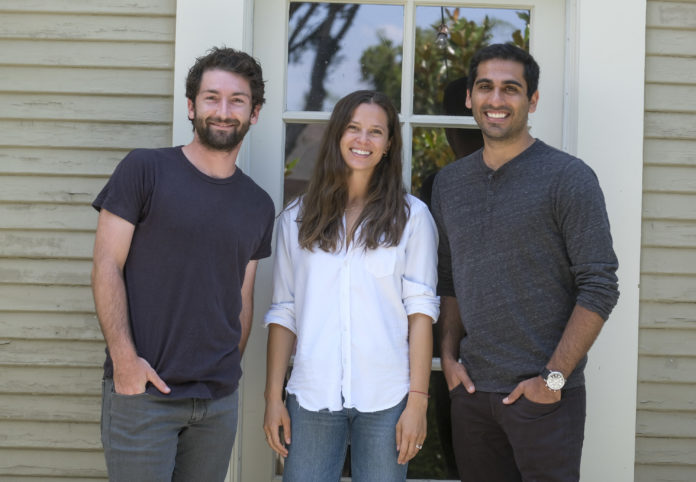Greg Comanor, 27
Sonya Falcone, 29
Aaron Sassounian, 29
Company: Daylight Community Development
Title: Partners
Business: Affordable real estate development
Location: West Hollywood
Employees: 3
Financials: $50 million raised to date
What led you to start this business?
Aaron Sassounian: The three of us met in business school. We all are UCLA Anderson alumni. We all have different backgrounds … but knew that homelessness was extremely top of mind in California. We were interested in new legislation around homelessness. We started to put our heads together on a business plan that made sense. One of my passions was modular construction techniques where you build most of the building in a factory and ship it over. We thought there would be a really good synergy between the two.
Greg Comanor: I’m from L.A. I started at UCLA Anderson Business School in August 2017, and it was clear that I wanted to focus on affordable housing. L.A. is going through an incredibly stressful and problematic homeless and affordable housing crisis. The first year of business school, I focused on learning as much as I could about the industry and focusing on what worked and what didn’t. The end of the first year I approached Aaron and Sonya, and we purchased a site in Watts. We applied for funding and all of the sudden had an award for $2.5 million from the city of Los Angeles.
How did you fund it?
Sonya Falcone: Our company was really born out of the HHH program. All five of our projects to date have been HHH funded, but we have a couple in the pipeline now that are not HHH funded. Since then, we have financed with No Place Like Home dollars and with tax credits. We’ve also been pretty successful in leveraging private capital as intermediate funding. We’re working hard right now to close a predevelopment line of credit with a market-rate developer.
GC: We’ve raised over $50 million in the last 18 months to support our projects, and that includes capital dollars and operating subsidy dollars. That’s both public loans for development and vouchers to help pay the rent. We are trying to bring more private capital to the industry. We are trying to bring institutional investors looking for a social impact investment to the space.
What are the advantages and disadvantages to starting a business in your 20s?
AS: Real estate is generally an older industry. Most of the people who are running businesses are older white men. It was advantageous because we were seen as new entrants, and it was really exciting for people to see us come and be really excited about it and bring new ideas. At the same time, there are some people who looked at us and said, “What do you guys know?”
SF: The fact that we are quick to question the status quo and the norms of the affordable housing industry has allowed us to take risks and brought our costs down dramatically. … (Companies and lenders) are energized by working with folks who are younger and bringing fresh energy to the space.
GC: This is a challenging space that has a lot of government oversight. Having a fresh approach and not having that background of how things have been done in the past is a really helpful tool. We look at some of the practices that are standard in the industry, and a lot of these processes don’t make sense.
How has the pandemic impacted your business?
AS: We are an essential business. We are still moving full throttle. In L.A. and California, there is a lot of empty hotel space and a lot of homeless individuals are being put up in these hotels. It’s not a long-term solution. What terrifies me is that when this is all over, what do you do? It’s hard to take somebody that is now housed and ask them to leave that housing without providing another solution. For us, it’s pedal to the metal to do our best to provide as much housing as possible, and the pandemic has accelerated things.
Do you feel that your business is tailored to the Los Angeles market?
AS: Right now, we are very tailored to L.A. All of the funding platforms are L.A. city, L.A. County or California specific. We are utilizing L.A. zones and state ordinances to expedite and create different entitlement programs to make these programs more dense and make financial sense. We started the business because of the problems here.
Keep reading the 2020 edition of the 20 in Their 20s special report.

